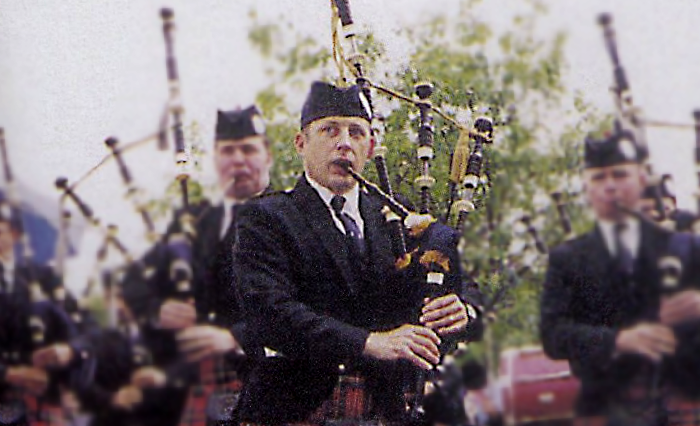
My name is Ian Plunkett. I am 63 and competed in Grade 1 as a piper from the age of 16. I played in Red Hackle in its various incarnations, Glasgow Skye, was Pipe Major of Strathclyde Police from 1997 to 2002, and latterly played with Scottish Power. I am qualified to Level 6 with the RSPBA and I am a recognised instructor and assessor within the organisation.
By Ian Plunkett
I write this with regard to my disillusionment with the system for the training of Association judges after I was accepted for a course held in March this year. I will set out the reasons for my disillusionment below.
Who would judge? Anyone listening to any live or recorded performance of a band is entitled to express an opinion and list prizewinners in a particular order.
At competitions I have seen people doing this from first to last in the various grades. This public involvement enhances the great tapestry of pipe bands and we are the better for it. All pipe band followers are judges and rightly so. It is healthy to have different attitudes towards tone, musical expression, and construction of MSRs or Medleys.
But at the end of the day these opinions are personal and do not influence the actual outcome of competitions; nor should they. This must be left to the qualified experts, the RSPBA judges. Everyone accepts this.
Now, who should present themselves to be such a judge? I agree there needs to be a recognised background in pipe band musicianship: playing at the highest level, but also taking into account any experience as a pipe major or pipe sergeant. Prize-winning at the highest level also comes into it.
In addition to this we must include integrity. Judges need to put petty grievances and favouritism to one side when stacking up performances. This must be done without prejudice, to the best of the judge’s knowledge, and without outside influence. I think most people would agree with this.
My argument is not with any of that but with the present judges’ training set up. It mitigates against the introduction of fresh faces to the line-up. Look at my own experience. I spent three years gaining the recognised qualifications for consideration to be a judge.
I had been informed that my previous experience and positions held comfortably put me in line to progress. I was particularly positive on knowing that in the past individuals had been fast tracked to the Adjudicator’s Panel and the process was fairly quick. I later learned the process would be longer – the ‘fast track’ route had been removed. Despite this I believed it would not be unreasonably long before I got my judge’s ticket.
You will understand my disbelief when, having attended and completed the online training weekend in March this year, I was informed that it would be followed by 12 monitored runs over a period of two seasons followed by a further two-year probationary period.
I fully understand there needs to be a monitoring of a new judge regarding what he writes and his placings being open to scrutiny. But I find it staggering that this possibly takes two seasons then a further two years’ probation, particularly in my case after having been told my experience and positions had qualified me to the highest standard.
I feel this gives no encouragement to persons wishing to come onto the judging panel; it is a barrier. I find it particularly upsetting that this seems to be a relatively new set up. Where did the 12 monitored runs and further probation come from, and what research was carried out leading to the conclusion that they were necessary?
There could be a perception that this system is making a closed environment of individuals, with some as qualified as myself only getting over the finish line in spite of the set up rather than because of it.
The argument could be made these rules are designed to improve the standard of judging and I take the point. But the question has to be asked: is this the answer? I don’t believe so.